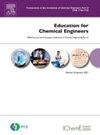在普通化学科目中使用DOCTUS制作问题册,实施连续评估系统
IF 2.3
2区 教育学
Q1 EDUCATION, SCIENTIFIC DISCIPLINES
引用次数: 0
摘要
在学生数量较多的化学学科中实施了形成性和结论性相结合的连续评价体系。该系统采用了通过应用程序(DOCTUS)开发的个性化问题笔记本,可以生成个性化的复杂问题陈述,易于修改,并且有多种提交机会。这种方法有助于有效的反馈,促进自主和合作学习,加快学习过程,提高活动成就水平。这项经验是在每年91名参加“化学”课程的学生中进行的,这与塞维利亚高等工程技术学院(塞维利亚大学)化学工程学位第一学年相对应,尽管只有71名学生参加了这项活动。所使用的平台提供免费访问,用于为每个学生创建个性化的问题笔记本。它使用个性化数据分配相同的问题,并在10 s内通过Excel文件纠正提交。观察到结果有所改善;由于学生在交卷后立即获得了作业的数字分数,他们可以在很短的时间内(几个小时)重做,当学生仍然在他们的脑海中有问题,他们想要的地方和他们考虑的材料,并且没有大量增加教师花费的时间。最终的资格比往年平均高出1.2分。与同一学年的其他科目相比,化学科目不参加该科目的学生比例较低(22 %,而同一课程的其他科目为30-54 %)。获得批准的学生人数有所增加,这反映在留级生的人数上,第二年留级生的人数从42% %下降到29% %。本文章由计算机程序翻译,如有差异,请以英文原文为准。
Implementation of a continuous assessment system through the creation of a problem book using DOCTUS in general chemistry subjects
A continuous evaluation system, integrating both formative and summative assessments has been implemented in a Chemistry subject with a high number of students. This system employs a personalized problem notebook developed through an application (DOCTUS), enabling the generation of individualized complex problem statements, easy correction, and multiple submission opportunities. This approach facilitates effective feedback, promotes autonomous and cooperative learning, accelerates the learning process, and enhances activity achievement levels. The experience has been carried out with a group of 91 students enrolled per year in the subject 'Chemistry' corresponding to the first academic year in degree of Chemical Engineering at the Higher Technical School of Engineering (University of Seville), although only 71 have participated in the activity. The platform used, which offers free access, was utilized to create personalized problem notebooks for each student. It assigns identical problems with personalized data and corrects submissions via Excel files in under 10 s. An improvement in the results has been observed; since the students have obtained a numerical grade for their work instantly after delivery of the problem, and they can redo it at a short time (hours), when the students still have the problem in their mind, where they want and with the material that they consider, and without a large increase in the amount of time spent by the teacher. The final qualification was on average 1.2 points higher than previous years. Compared to other subjects in the same academic year, Chemistry had a lower percentage of students who did not participated in the subject (22 % compared to 30–54 % in other subjects from the same course). The number of approved students has increased, reflected in the number of repeaters, which decreased in the next year from 42 % to 29 %.
求助全文
通过发布文献求助,成功后即可免费获取论文全文。
去求助
来源期刊

Education for Chemical Engineers
Multiple-
CiteScore
8.80
自引率
17.90%
发文量
30
审稿时长
31 days
期刊介绍:
Education for Chemical Engineers was launched in 2006 with a remit to publisheducation research papers, resource reviews and teaching and learning notes. ECE is targeted at chemical engineering academics and educators, discussing the ongoingchanges and development in chemical engineering education. This international title publishes papers from around the world, creating a global network of chemical engineering academics. Papers demonstrating how educational research results can be applied to chemical engineering education are particularly welcome, as are the accounts of research work that brings new perspectives to established principles, highlighting unsolved problems or indicating direction for future research relevant to chemical engineering education. Core topic areas: -Assessment- Accreditation- Curriculum development and transformation- Design- Diversity- Distance education-- E-learning Entrepreneurship programs- Industry-academic linkages- Benchmarking- Lifelong learning- Multidisciplinary programs- Outreach from kindergarten to high school programs- Student recruitment and retention and transition programs- New technology- Problem-based learning- Social responsibility and professionalism- Teamwork- Web-based learning
 求助内容:
求助内容: 应助结果提醒方式:
应助结果提醒方式:


